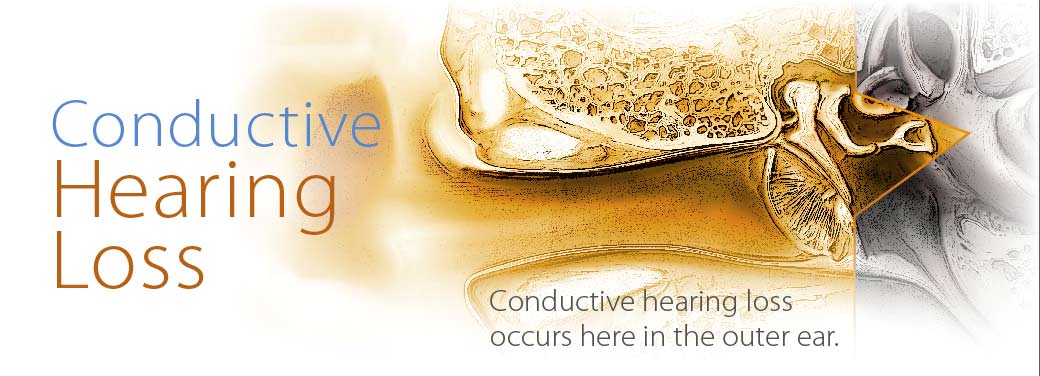What is Conductive Hearing Loss?
A conductive hearing loss occurs when there is a problem with the one or more of the parts of the ear that conduct sound into the inner ear. The ear canal, ear drum, and the tiny bones in the middle ear make up the conductive system and any hearing loss caused by a problem in one or more of these areas is called a conductive hearing loss. Unlike a sensorineural hearing loss a conductive hearing loss occurs because the sound entering the ear is reduced or dampened by the obstruction; there is no damage to the delicate nerves in the inner ear. A conductive hearing loss can often be partially or completely reversed with medical intervention.
Potential Causes:
There are many potential causes of conductive hearing loss, with some causes being easier to treat than others. Malformation of the outer or middle ear structures, a middle ear infection in which fluid accumulates behind the eardrum, abnormal bone growth in the middle ear, a hole in the eardrum, or poor Eustachian tube function may be responsible for conductive hearing loss. Rarely, there may be more serious causes of conductive hearing loss and these conditions, if left unidentified and untreated, may have profound medical consequences.
Treatment Options:
Treatment for conductive hearing loss varies based on the circumstances. Antibiotics or antifungal medications are usually prescribed for ear infections, whereas surgery is usually an option for malformed or abnormal outer or middle ear structures and other physical problems. Hearing aids are often the best answer when surgery is not possible, because they significantly improve hearing and are convenient. Though usually not necessary, implantable hearing devices such as a bone-anchored hearing aid are an excellent alternative if neither surgery nor a traditional hearing aid are feasible options.
Learn about the other types of hearing loss:
If you have any questions about conductive hearing loss or hearing loss in general, please contact our location to speak with an audiologist.

